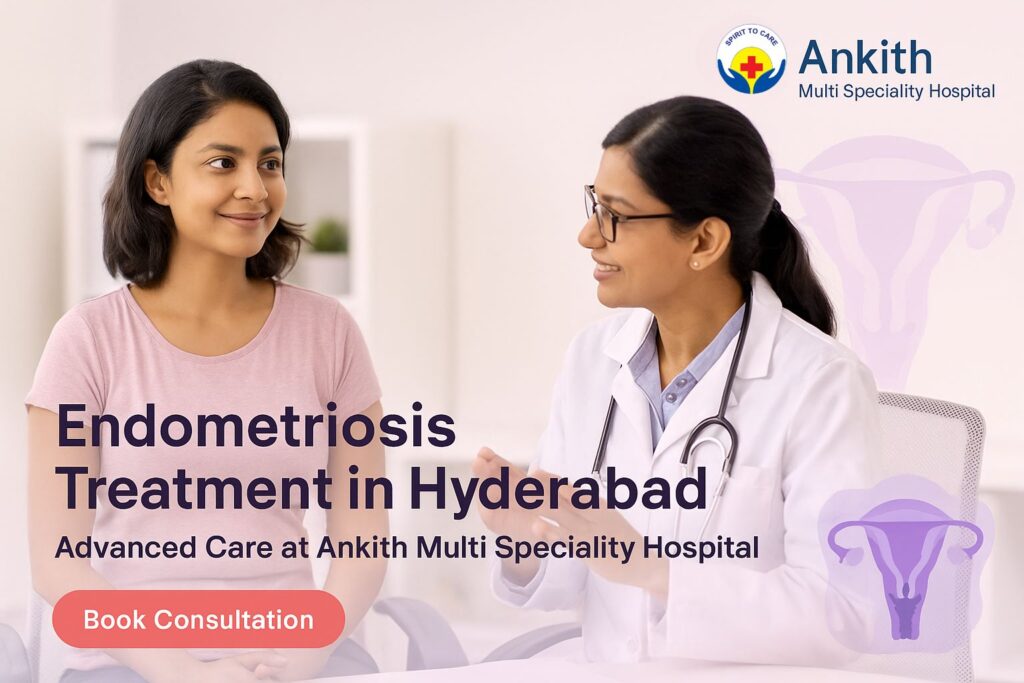Diagnosing endometriosis involves a stepwise process:
1. Detailed Medical History
We take comprehensive your history of menstrual patterns, family background, and symptom severity.
2. Physical Pelvic Examination
A gentle examination to detect enlarged or tender areas in the uterus, ovaries, or presence of nodules.
3. Imaging (Ultrasound, MRI)
Transvaginal ultrasound can identify ovarian endometriomas (“chocolate cysts”), while MRI helps detect deeper infiltrating lesions. While helpful, these may miss subtle pelvic implants.
4. Laparoscopy – The Gold Standard
A minimally invasive procedure to explore the pelvis directly and take tissue biopsies. This confirms diagnosis and can sometimes treat visible implants in the same surgery.
5. Blood Markers (CA‑125)
Typically elevated in many affected women, though not specific enough for definitive diagnosis.
At Ankith Multi Speciality Hospital, our dynamic team of gynecology specialists tailors diagnostic workflows based on symptoms, imaging results, and patient goals, ensuring accuracy and comfort at every step.














